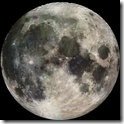There has been in the past some discussion here about Lovecraft and his atheist and nihilistic beliefs, mirrored in his stories. It is stressed that the stories he writes are more nihilistic than the most pessimistic nihilists,
By comparison, Lovecraftianism assumes there is no hope at all, so knowing the truth can’t save you. Knowledge is only power if there is some realistic chance you can act upon it. Lovecraft’s stories often assumed there was not.
https://www.millennialstar.org/what-is-lovecraftianism/
A key word in the quote is “often” as even his most popular stories have some moral criticisms that are overlooked. It might be true that once the truth of how inconsequential they are is found out humans will go completely insane. Putting that aside, there is almost always some human action that provokes the cosmic horror to be unleashed. Even when there is a case that the horror is not provoked into surfacing, past or current moral deficiencies tend to exacerbate the situation.
* Evil is not a natural part of the (neutral) physical world.
* Sins that are taught or ignored can become multi-generational
* Evil takes root where family, community, and eventually civilization are at odds.
* War and violence lead to awakening ancient evils.
* Humans can be as destructive as the forces they cannot detect or control.
Although the videos I made about some short stories of H.P. Lovecraft look at them as a whole, there are still a few moral lessons. Don’t expect any specific descriptions of morality and sin. Despite that, it is interesting to see how this atheist author used his work to point out social disorder.
Continue reading

